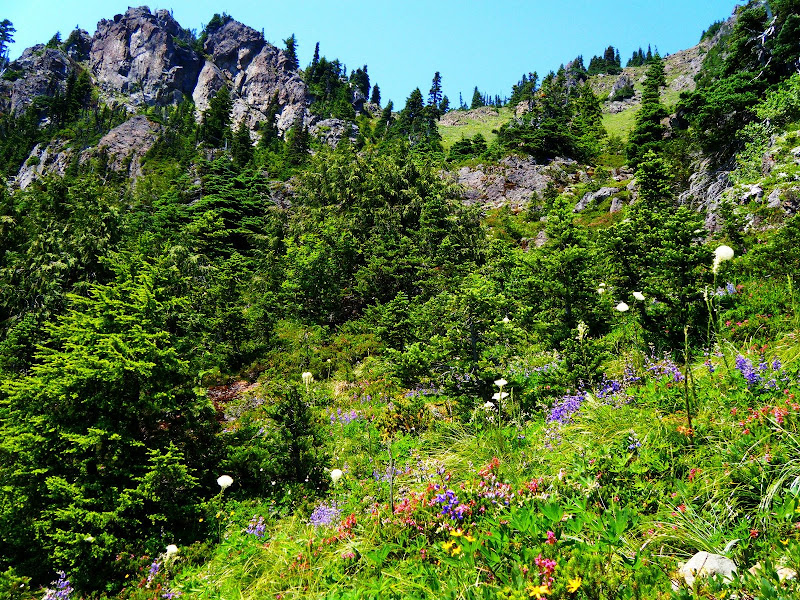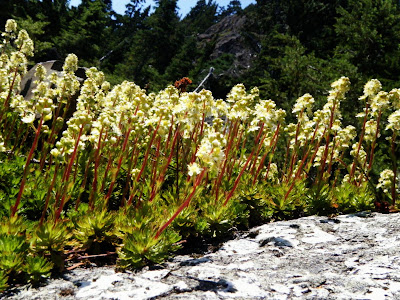the maritime pacific northwest, the land of giant-sized plants, everything flowering, 16 hours of sunlight, 2 hour sunsets, and all the beer and meat I can eat. Our explorations today included an investigation of the lowest tide (-3 feet) this month, and a trans-estuary hike to a small creek where the old brick factory used to be. Beautiful wetland!

Through the blackberries. A machete is helpful.

Wild plum. Invasive English Ivy sheathes most of the Big Leaf Maples, and 6-ft Urtica is common understory. Nutka Rose and Sitka Brome announce that this is Cascadia.

The jungle beckons. Roses and Blackberries and Fireweed occupy the drying gradient rim. The history, hydrology, and area are heavily impacted by humans.

This is a protected sanctuary, rimmed by 200 ft douglas fir and dominated by a grass-leaved Luzula (?), Salicornia, Distichlis spicata, and a fleshy leaved Asteraceae.

In the center of the stream's meander through the intertidal zone.

Entering the estuary, we decided to take a shortcut across the muck-filled intertidal zone.

Eggshell casting: these cast-off sand collars are rubbery and fun to tear. The snails leave them behind when they dive under the sand to evade the sun.

We saw red, white, and transparent worms, some with tubular casings, snails, geoducks, and many, many dead crabs. (not sure why).

Poking the seasnail.






 The jungle beckons. Roses and Blackberries and Fireweed occupy the drying gradient rim. The history, hydrology, and area are heavily impacted by humans.
The jungle beckons. Roses and Blackberries and Fireweed occupy the drying gradient rim. The history, hydrology, and area are heavily impacted by humans. This is a protected sanctuary, rimmed by 200 ft douglas fir and dominated by a grass-leaved Luzula (?), Salicornia, Distichlis spicata, and a fleshy leaved Asteraceae.
This is a protected sanctuary, rimmed by 200 ft douglas fir and dominated by a grass-leaved Luzula (?), Salicornia, Distichlis spicata, and a fleshy leaved Asteraceae. In the center of the stream's meander through the intertidal zone.
In the center of the stream's meander through the intertidal zone.